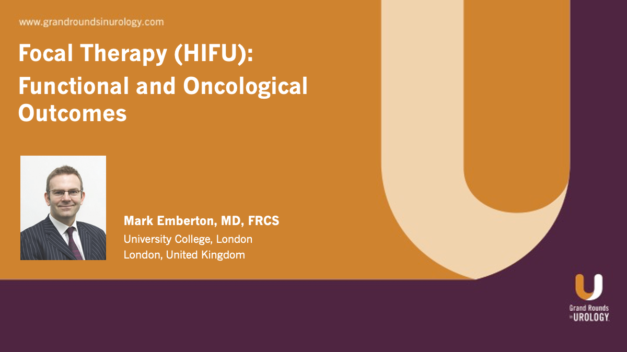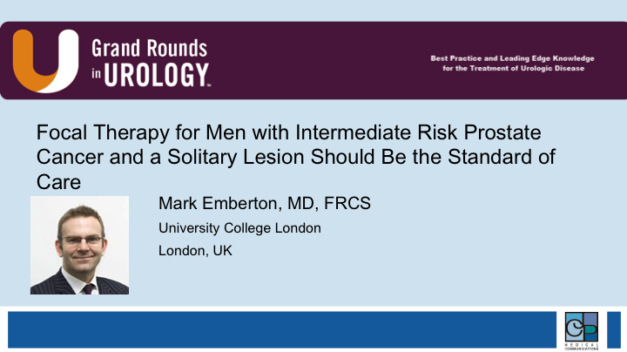Focal Therapy (HIFU): Functional and Oncological Outcomes
Mark Emberton, MD, FRCS, Professor of Interventional Oncology at University College London, discusses what is and is not known as of 2020 about focal therapy—particularly high intensity focused ultrasound, or HIFU—for localized prostate cancer. He observes that since there is more than a decade’s worth of research behind it, HIFU is hardly experimental anymore, and urologists are by now aware of the therapy’s safety profile, patient selection criteria, short-term outcomes, and medium-term outcomes, with only long-term outcomes still unknown. Dr. Emberton then discusses the goals of focal therapy, the technologies that can or could potentially be used to perform focal therapy, and patient eligibility criteria. He addresses the criticism that focal therapy only treats disease that does not need to be treated, explaining that while this may have been somewhat true in focal therapy’s early conservative years, the era of multiparametric MRI and PSMA PET-CT has made focal therapy more effective, and there exists plenty of research showing that focal therapy is a good alternative treatment that allows patients to maintain continence and erectile function while controlling their cancer. Dr. Emberton concludes by discussing the future of focal therapy, noting that focal therapy programs must embrace stringent quality-control measures, have a true partnership with radiology, have excellent risk stratification, and be committed to long-term follow-up through registries.
Read More

